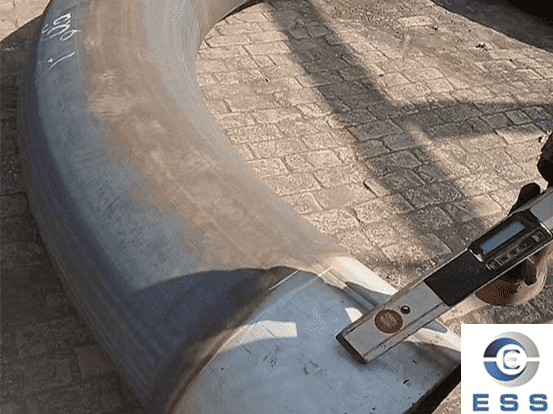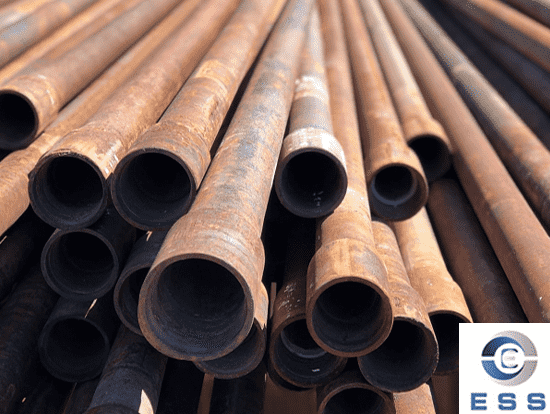
Basic qualification compliance review
The first step in screening boiler tube suppliers is to
verify their legal production qualifications and core certifications, which is
the premise for ensuring the legality and international recognition of
products:
1. China Special Equipment Manufacturing License (TSG)
Review its boiler tube production scope according to TSG 07-2019. In
the field of boiler tube manufacturing, if it involves the production of seamless pipe and other
products, it must ensure that its qualifications cover the corresponding scope.
2. International standard certification
Export scenarios need to check ASME Section I/Section VIII (North
America), PED CE (EU), JIS (Japan), etc.
3. Quality system certificate
ISO 9001 (quality management), ISO 3834 (welding process), ISO 14001
(environmental management) are indispensable. These system certificates ensure
that manufacturers have standardized quality control processes when producing
various pipeline products, such as carbon steel pipe.
Technical verification of material performance
The primary criterion for evaluating boiler tube suppliers is product
technical indicators, including:
1. Proof of material compliance
Boiler tube suppliers are required to provide ASTM/EN/GB material
certificates (such as SA-213 T22, GB5310 15CrMoG), and the material report must
comply with the requirements of ASME or GB5310 standards, with a focus on
checking parameters such as carbon equivalent and high-temperature yield
strength. For pipes with different uses such as hydraulic tubes, the material
performance requirements have different emphases.
2. Third-party verification report
SGS or TÜV is required to issue pressure tests (≥1.5 times
the working pressure), intergranular corrosion tests (ASTM A262), and actual
working condition oxidation resistance data (such as 600℃/1000h oxidation weight gain ≤2mg/cm²). For the precision tube used in the
chemical industry, corrosion resistance and high temperature resistance are
crucial. These verification reports can intuitively reflect the supplier's
technical strength in the manufacture of special material pipes.
Comprehensive review of supply chain stability
A complete capacity assessment should include:
1. Capacity assessment
Annual actual output and equipment utilization statistics, raw material
reserve cycle and emergency order response capability. Check the actual annual
output and equipment utilization rate in the past three years (≥80% is
recommended as a healthy value); the raw material inventory cycle should be ≥30 days, and the emergency order response speed should be ≤72 hours.
2. Process equipment level
The degree of automation and precision control of process equipment,
the precision of continuous rolling mill (wall thickness tolerance ≤±5%), the
temperature control precision of heat treatment furnace (within ±10℃); whether it is equipped with
full-process non-destructive testing equipment such as online eddy current flaw
detection (ECT) and ultrasonic automatic testing (AUT). When manufacturing
boiler tube accessories with high dimensional accuracy requirements such as pup joints, advanced
process equipment is the key to ensuring product quality.
Full life cycle service system
High-quality boiler tube suppliers should have technical value-added
service capabilities:
1. Design support
Provide selection calculations (including stress analysis, thermal
expansion compensation recommendations), welding process qualification
(WPS/PQR).
2. On-site service
Send engineers with CWI or CSWIP qualifications to guide installation
and avoid defects such as welding cold cracks.
3. Long-term guarantee
Establish annual monitoring of pipe wall thickness and failure analysis
database (such as SEM fracture analysis of pipe burst accidents).
In-depth analysis of cost composition
Price evaluation should establish a TCO model:
1. Detailed composition of raw material prices and processing fees.
2. Cost accounting of supporting logistics and warehousing.
3. Estimation of maintenance costs during the warranty period.
|
Cost level
|
Key items
|
Verification points
|
|
Direct cost
|
Raw material proportion (such as Cr-Mo price fluctuation hedging plan
in alloy tubes)
|
Requirement to decompose the processing fees of each link of steelmaking-rolling-heat
treatment
|
|
Hidden cost
|
Logistics packaging (sea transportation anti-rust VCI coating),
inventory capital occupation
|
Compare the economic batch balance point between JIT supply and bulk
purchase
|
|
Risk cost
|
Maintenance cost during the warranty period (calculate the weld
repair cost according to the pipe diameter × unit price)
|
Evaluate whether the boiler tube supplier provides life insurance
service
|
Summary
Establishing a scoring system with a quality weight of 40%, a capacity
of 25%, a service of 20%, and a cost of 15% can effectively quantify the
comprehensive competitiveness of boiler tube suppliers. Focus on whether the
boiler tube supplier has a complete quality traceability system and continuous
R&D investment, which are important guarantees for long-term cooperation.
Read more: How To Weld Boiler Tubes?













 Eastern Steel Manufacturing Co.,Ltd not only improve product production and sales services, but also provide additional value-added services. As long as you need, we can complete your specific needs together.
Eastern Steel Manufacturing Co.,Ltd not only improve product production and sales services, but also provide additional value-added services. As long as you need, we can complete your specific needs together.










